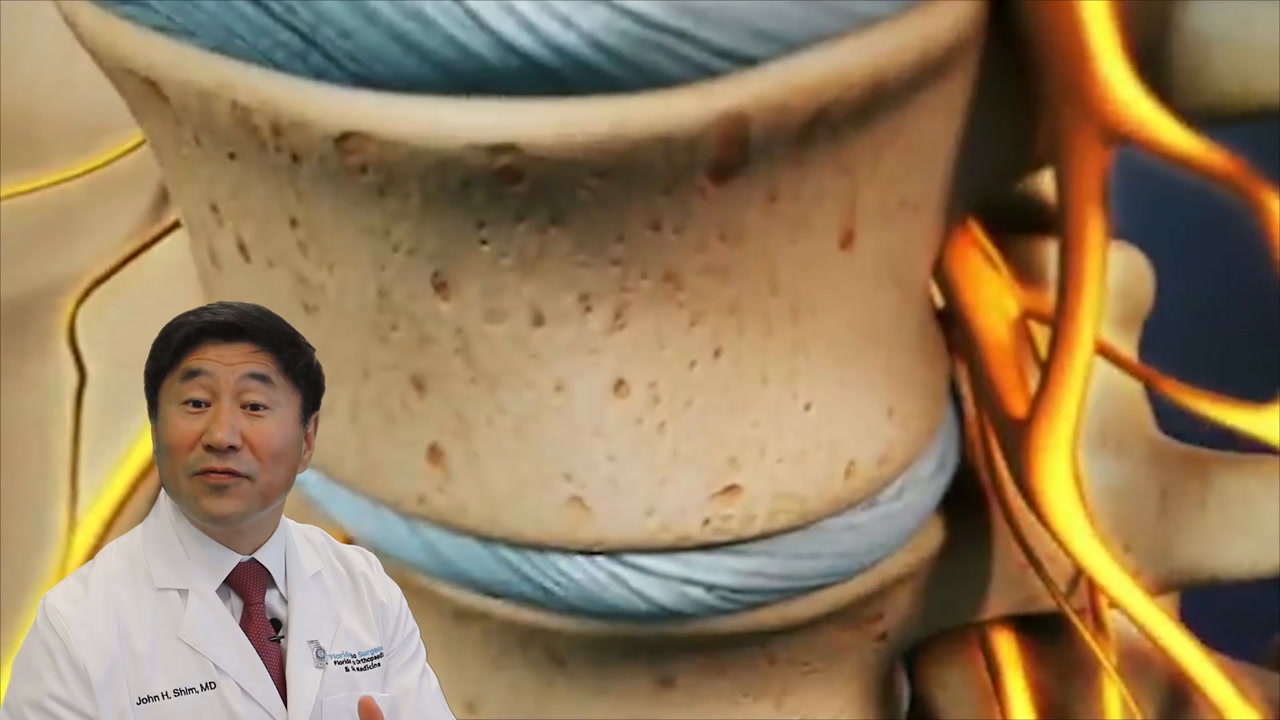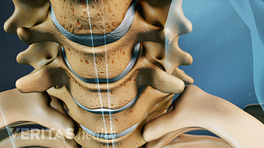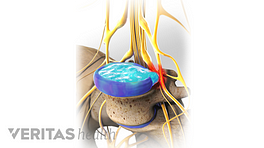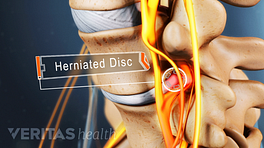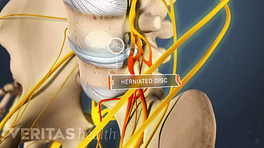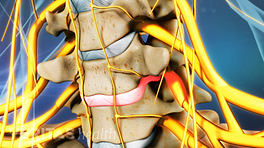I like to describe to patients a "bulging disc" is something to a car tire that loses its air pressure.
If you can imagine if your car tire is full of air, the sidewalls of a car tire is nice and flat and straight. But what happens when you lose air in that tire? With enough air leaking out of the tire, you'll start seeing the sidewalls start to bulge out. To me, that is the bulging disc. The bulging disc is the sidewall of the disc starting to bulge out because there's lack of water pressure inside the disc to hold that wall nice and straight, just like a car tire.
A "slipped disc" can be a bulged disc, or a herniated disc, but what that describes is when the disc starts to degenerate, it no longer can perform that function of a ligament, which is to hold the bones on top of each other in a uniform manner. So the discs start to shift back and forth on one another to a certain degree. That's a so-called slippage that people are talking about. But when the disc slips and pushes back and forth on the bone, sometimes it hits a nerve, and that's why people complain of sciatic pain or nerve pain from a slipped disc.
The final analogy I like to talk about is the herniated disc, and the analogy I like to use the jelly donut. As you know, the jelly donut is bread on the outside, jelly on the inside. We all know there's also a little hole used to fill the jelly donut full of jelly.
What happens when you press on the center of a jelly donut? A lot of times, the jelly actually comes out of that hole. That, actually, is a herniated disc. It's the central portion of the disc, which is the jelly, that then ruptures and goes outside the bread, or the annulus of a disc. So that's the difference between a herniated disc, which is a jelly donut with the jelly coming out, versus a bulged disc, which is a car tire where the air has leaked out. I hope this analogy makes sense for you. I hope this helps you know the difference between a bulge versus a herniation. As surgeons, we do know that there's a difference, and a lot of people get confused about it. It does help us, however, to describe what's going on with you, and it also helps us to try to relate to you why a herniated disc may benefit from more aggressive treatments versus a bulged disc.
Thank you for listening!
